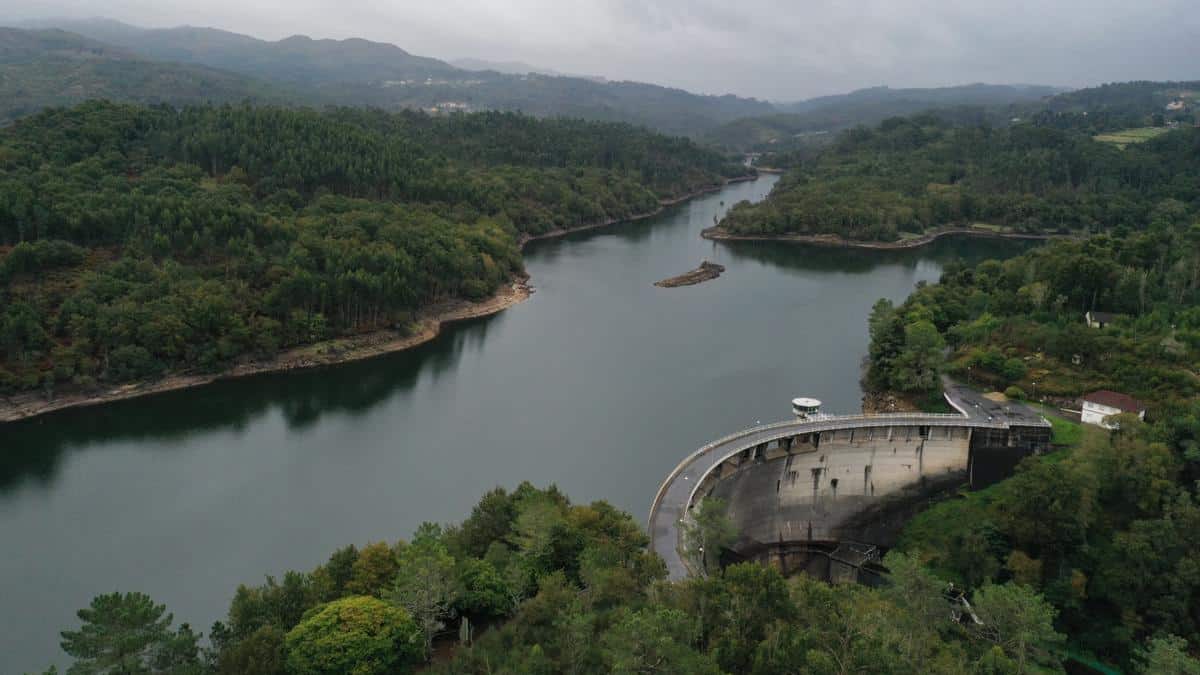He water constitutes a vital element for human being, biodiversity and ecosystems, and therefore you must meet adequate quality and quantity conditions. It is also a production factor, highly necessary in agriculture, in the generation of electricity, for the development of numerous industrial processes or for the production of tourist and environmental services.
Any Action that implies human intervention on the reservoirs where water is deposited It implies the possibility that they suffer relevant impacts. Therefore it is essential to know what is done and what is the impact of each action on the environment of the Reservoirs.
Water reservoirs in Galicia
The Xunta will promote this year a pioneer project for the study of the Impact that contamination and pressure linked to different types of activities developed in river environments and that end up having an impact on the environmental health of Ríos, Reservoirs and associated ecosystems.


To this end, the Minister of Environment and Climate Change, Ángeles Vázquez, and the rector of the University of Vigo (Uvigo), Manuel Reigosa, signed this morning a collaboration agreement to create a working group between Augas de Galicia and university researchers that deepens in the effects of the human action on the basin of the reservoirs and allow, at the same time, to plan future measures that result in their environmental improvement.
With a budget of 421,233 euros-93% will be contributed by water and 7% by the Uvigo-, the study will focus on the scope of three pilot basins, Caldas de Reis, as forced (Valdoviño) and portodemouro (Arzúa-Vila de Cruces), selected for being representative of the typologies of reservoirs in Galicia-Costa and with the intention of setting a new planning methodology applicable to others within the same basin.
First, as the agreement includes, an evaluation of the current situation in the chosen hydrographic basins will be carried out, which will allow establishing the first conclusions about the state of ecosystems and of the pressures that had been able to be aggravating their environmental situation.
Algorithms for the study of reservoir water
The chemical and biological dynamics of these areas over time, To better understand the impacts of pollution and develop a mathematical model that predicts the effects of the different pressures on water quality, mainly in nutrients.
With the data collected Throughout 2025 a first version of the algorithm will be held that will allow predicting the impacts on water quality, and already in the first half of 2026 this mathematical model will be perfected with the remaining data.
The final phase of the works (which will run until July 30 of next year) will consist of analyzing the response of the Three reservoirs before the presence of different amounts of nutrients and in the development of bioremediation experiments on the ground.
Specifically, a practical example of this technique is the planting of riverside vegetation to improve water quality in rivers and Reservoirs since native bushes and trees act as Natural filters due to its ability to absorb excess nutrients from various sources. In addition, they decrease the amount of sediments that move to the water and its roots stabilize the soil and reduce erosion.
Reservoirs: Good indicators of the health of rivers
The impact on the hydrographic basins of pollution by diffuse sources – that is, that from several small and scattered points and, therefore, more difficult to control – affects the quality of the water, causing eutrophication that can lead to the decrease of oxygen and the proliferation of harmful algae For biodiversity. This situation not only threatens species that depend on these ecosystems, but it compromises the availability of the water resources of the affected area.
In the case of the basins regulated by reservoirs, These, when accumulating water inside, are usually a good medium -term indicator of the presence and effects of this type of diffuse contamination. In this sense, it is necessary to underline that Reservoirs They allow to measure several interest parameters such as nutrients, sediments and other elements.
The importance of this project, as Ángeles Vázquez explained, is that for the first time in the field of Galicia-Costa, the effects of economic and human activities on the quality of the waters of the waters of the Reservoirs With the end to evaluate the response of ecosystems before these pressures and to plan and implement the most effective biological remediation measures to guarantee an environmental improvement of these masses.
In this regard, it influenced the importance of continuing to advocate the research of universities to protect the natural resources of the community thanks to digital tools like the one that will develop the new working group. In fact, the agreement signed today is framed in the commitment to the professionalization of Augas de Galicia and will be financed by European funds of the Nextnerationue for the transition in the water sector.

